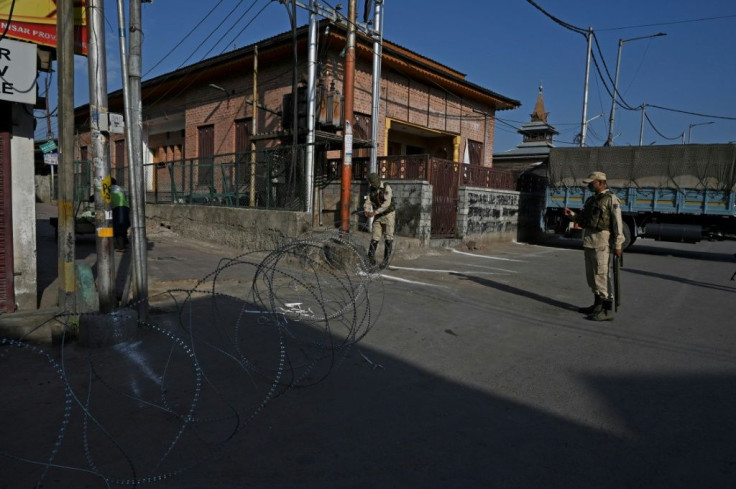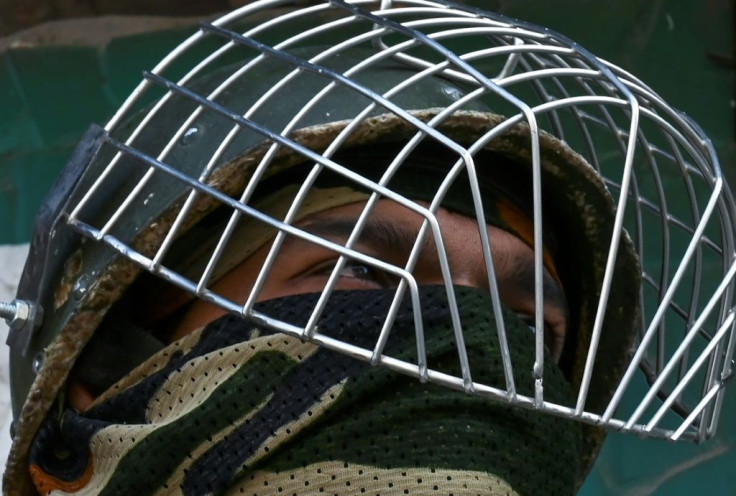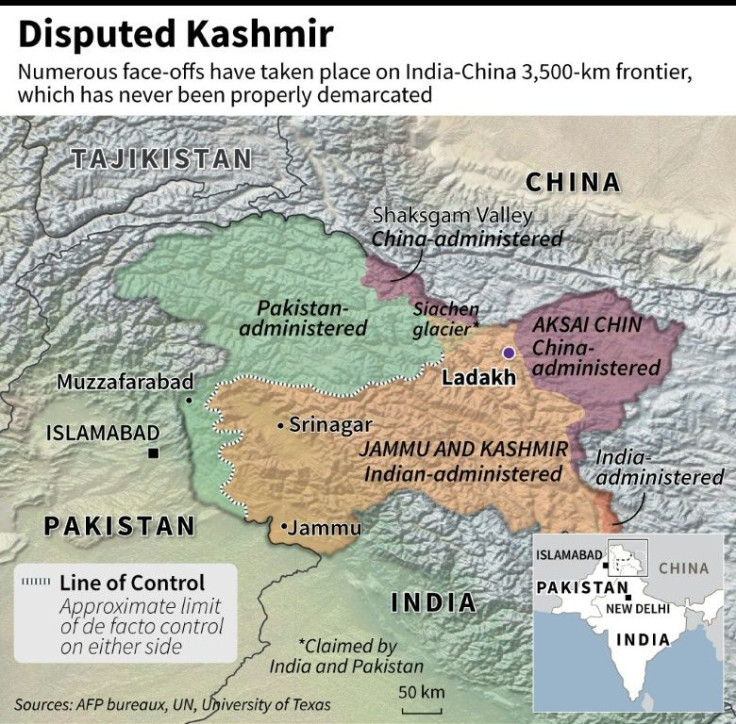Indian Kashmir Under Curfew Ahead Of 'Black Day' Anniversary
Thousands of Indian troops imposed a curfew in Kashmir on Tuesday, with razor wire and steel barricades blocking main roads a day ahead of the one-year anniversary of the restive region being stripped of its autonomy.
Prime Minister Narendra Modi imposed direct rule last August 5, promising peace and prosperity after three decades of violence that have seen tens of thousands of people killed in an anti-India uprising.
Officials announced a two-day "full curfew" on Monday citing intelligence reports of looming protests in the Muslim-majority region of seven million people, where locals have called for the anniversary to be marked as a "black day".
A "full curfew" means people can only move around with an official pass, usually reserved for essential services such as police and ambulances.

The curfew was unexpectedly lifted in Srinagar late Tuesday, with authorities saying in a statement that Kashmir's main city had been "incident-free" since Monday.
But the government added that restrictions introduced in recent days to reduce the spread of the coronavirus would remain in place, with most economic activities limited and public movement curtailed.
On Monday morning, new barricades were placed on main roads on Srinagar, and on Tuesday thousands of government troops fanned across the city and surrounding villages.
"Police in vehicles moved through our locality and from loudspeakers ordered us to stay indoors for two days -- as if we were not already caged," said Imriyaz Ali, who lives in the Srinagar old town.
"I saw mobile phones of two of my neighbours taken away by soldiers when they got out to buy bread from a local baker early in the morning," said one villager by phone from Nazneenpora village.

For locals, the new curfew brought back memories of the weeks-long clampdown a year ago.
Then, a total communications blackout was imposed, with phone and internet access cut and tens of thousands of fresh troops moved into the valley -- already one of the world's most militarised regions.

Around 7,000 people were taken into custody -- including three former chief ministers. Hundreds remain under house arrest or behind bars to this day, mostly without charge.
For Modi's Hindu nationalist Bharatiya Janata Party, Kashmir's special status had produced "nothing but terrorism, separatism, nepotism and big corruption," he said last year.
The move, which has been accompanied by an upsurge in violence that is set to make 2020 the bloodiest year in a decade, has triggered major economic hardship exacerbated by the coronavirus pandemic.
Many locals are also angry that for the first time, people from outside Kashmir are being granted rights to buy land, fearing that India wants to change the region's demographic makeup.
"Indian government claims that it was determined to improve Kashmiri lives ring hollow one year after the revocation of Jammu and Kashmir's constitutional status," Meenakshi Ganguly from Human Rights Watch said in a statement.
"The authorities instead have maintained stifling restraints on Kashmiris in violation of their basic rights."
Kashmir has been split since 1947 between India and Pakistan, both of which claim it in full. It has been the spark for two wars between the arch-rivals.
India accuses Pakistan of sending militants over their de-facto Kashmir border to commit violence and of supporting rebels on the ground, charges that Islamabad denies.
Pakistan's Prime Minister Imran Khan, likening Modi to Hitler, has attempted to have India pilloried at the United Nations over Kashmir, but to little avail despite backing from China.
On Wednesday, Khan is expected to visit Muzaffarabad, capital of Pakistan-administered Kashmir, to mark what Islamabad has labelled the "Day of Exploitation".
Anti-India protests are planned throughout Pakistani Kashmir while all major cities in Pakistan will hold solidarity marches, along with a one-minute silence.
"Kashmiris have rejected the Indian annexation of August 5, no one has accepted this decision and the struggle for the right to self-determination will continue," Pakistani Foreign Minister Shah Mahmood Qureshi said Monday.
© Copyright AFP 2024. All rights reserved.





















